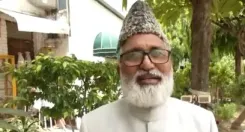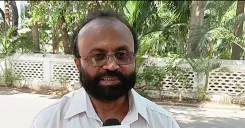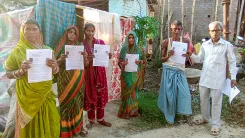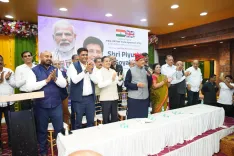PM Modi's Upcoming Trip to Sri Lanka: Exploring India-Sri Lanka Ties Across Key Sectors
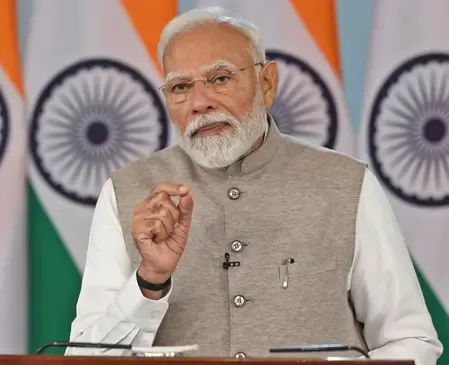
Synopsis
Key Takeaways
- PM Modi's visit is set for April 4, 2023.
- Focus on energy, trade, and economic collaborations.
- Strengthening defence and security ties.
- Enhancing connectivity and tourism initiatives.
- Indian diaspora plays a significant role in Sri Lanka.
New Delhi, April 1 (NationPress) Prime Minister Narendra Modi is scheduled to embark on a two-day visit to Sri Lanka on April 4, following an invitation from President Anura Kumara Dissanayake. This trip is anticipated to foster numerous collaborations in various sectors, including energy, trade, and other economic domains.
PM Modi's journey comes shortly after the Sri Lankan President acknowledged in Parliament that the Indian PM is visiting for the stability of their nation.
The significance of this visit is heightened by the ongoing tumultuous political climate in Sri Lanka, characterized by violent protests at key national sites.
During his stay, PM Modi will inaugurate several India-assisted projects in Sri Lanka, including the NTPC Sampur Solar Project and various other renewable energy initiatives. With Indian government-sponsored projects taking shape and Sri Lanka expressing its gratitude, the relationship between the two countries appears poised for a new phase of engagement.
Here, we examine how the two nations share connections across various domains, from defence to security to tourism.
Defence and Security Cooperation
The defence and security collaboration between India and Sri Lanka is robust, as the armed forces of both nations engage in regular interactions every year.
An Annual Defence Dialogue is conducted between Defence Secretaries annually to assess and enhance bilateral cooperation. In addition to multilateral exercises, the bilateral exercises SLINEX (Naval Exercise) and MITRA SHAKTI (Army Exercise) are held alternately in India and Sri Lanka. The last MITRA SHAKTI exercise took place in Sri Lanka, while SLINEX was conducted in Visakhapatnam last year.
India plays a pivotal role in enhancing the capacity of Sri Lankan security forces. A Maritime Rescue Coordination Centre (MRCC) for the Sri Lankan Navy was established during External Affairs Minister S. Jaishankar's visit last year. Furthermore, Indian Navy Dornier Aircraft have been utilized by the Sri Lanka Air Force at Trincomalee for maritime surveillance over the past two years. India is also offering 1200 training positions for the Sri Lankan Armed Forces each year.
India has consistently acted as a ‘first responder’ for Sri Lanka, with the Indian Navy and Indian Coast Guard intervening in Sri Lankan waters to prevent significant environmental disasters, such as the MV XPress Pearl incident in May 2021 and the MT New Diamond incident in September 2020.
Connectivity and Tourism
Connectivity and tourism represent other essential areas of bilateral cooperation, enhancing economic and financial connectivity, digital connectivity, and people-to-people connections.
Significant projects under this framework include the initiation of ferry services between Nagapattinam, Tamil Nadu, and Kankesanthurai, Sri Lanka (October 2023); the resumption of air links between Chennai and Jaffna (since December 2022); and the launch of UPI QR-based payments in Sri Lanka (virtually inaugurated by PM Modi and then-President Ranil Wickremesinghe via video conferencing in February 2024).
India has provided a grant of $61.5 million to the Sri Lankan government for the development of Kankesanthurai port and has signed an MoU to formalize negotiations.
Discussions are also ongoing regarding the commencement of ferry services between Rameswaram (TN) and Talaimannar, which will necessitate infrastructure upgrades at the respective ports.
Tourism is emerging as a significant avenue of cooperation, with Sri Lanka receiving 300,000 Indian tourists in 2023, a figure that increased to 416,000 the following year.
Indian Diaspora in Sri Lanka
A considerable population of people of Indian origin (PIOs), including Gujaratis, Malayalis, Telugu, and Sindhis, reside in Sri Lanka. They have been living there for generations and are engaged in various business ventures. The Indian community in Sri Lanka is economically empowered and prosperous, playing a crucial role in shaping the discourse between the two nations. There are over 7,500 Non-Resident Indians (NRIs) residing in Sri Lanka, working in diverse professional fields.

